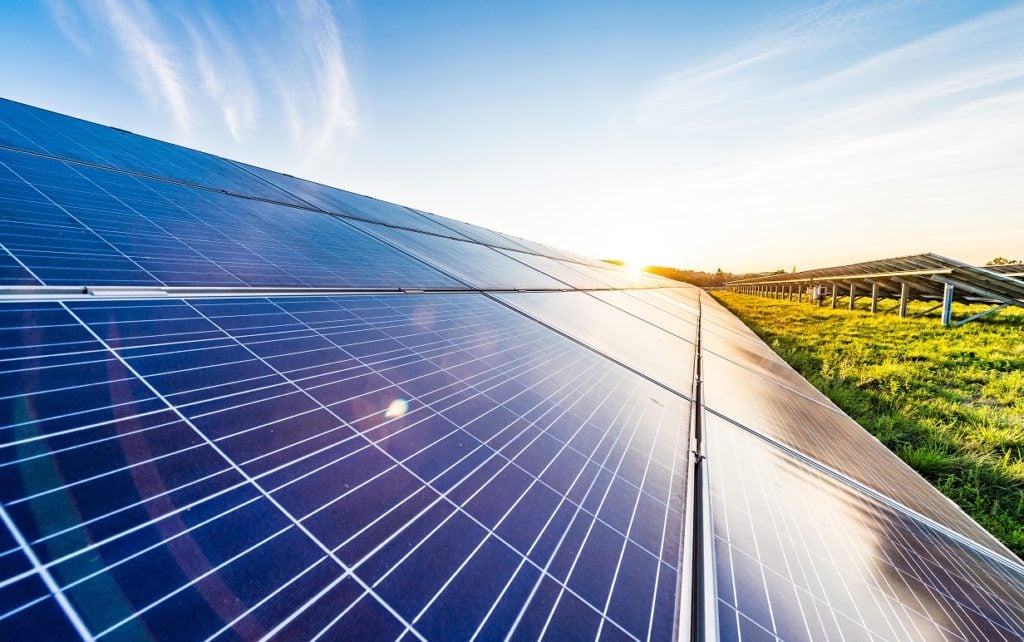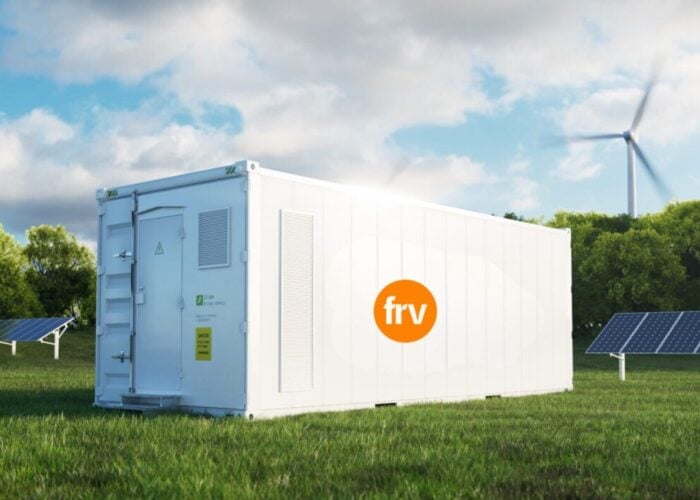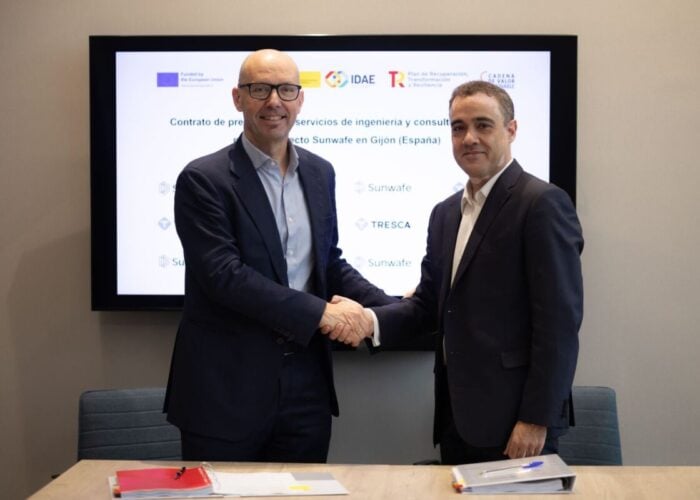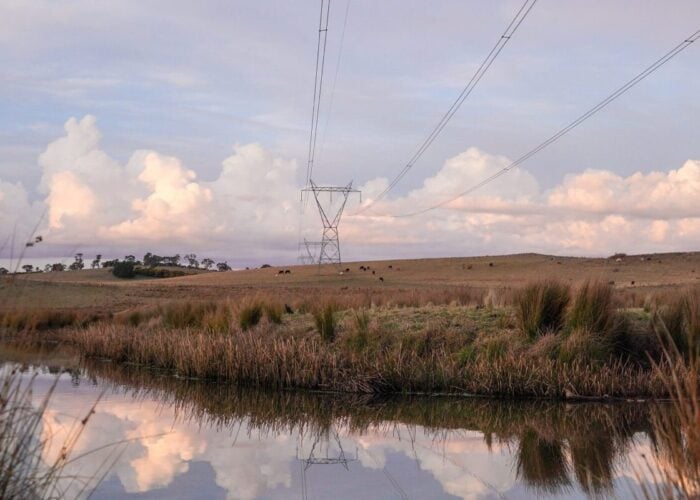
Average winning solar bids in Spain’s renewables auction this week came in above those for wind as interest among PV bidders faltered against a backdrop of rising equipment costs and regulatory challenges.
The oversubscribed 3.3GW auction on Tuesday saw 61 bidders participate and allocated 95% of available capacity, with 866MW going to solar and 2,258MW to wind.
Try Premium for just $1
- Full premium access for the first month at only $1
- Converts to an annual rate after 30 days unless cancelled
- Cancel anytime during the trial period
Premium Benefits
- Expert industry analysis and interviews
- Digital access to PV Tech Power journal
- Exclusive event discounts
Or get the full Premium subscription right away
Or continue reading this article for free
The lowest winning solar bid came in at €0.0244/kWh (US$0.0284/kWh), 64% higher than the lowest PV price in Spain’s renewables auction in January, which was dominated by solar and involved 84 participants.
“We know that EPC costs have increased significantly in the last several months and so we had expected that to filter through into the results of this auction,” says Ana Barillas, head of Iberia at consultancy Aurora Energy Research.
Following sustained polysilicon price increases, some modules prices have risen to levels not seen in the past two years, the impact of which has already been seen in auctions elsewhere, with the lowest bid in Saudi Arabia’s latest solar tender up 43% on a winning bid seen in a previous round.
Spanish utility Naturgy secured the most solar capacity in the country’s latest auction, winning 221MW, followed by Nearco Renovables (216MW) and Ignis (144MW). While international companies EDP, TotalEnergies and Engie were also successful, the auction was shunned by some of Spain’s large energy players, including Iberdrola and Acciona.
The country’s minister for ecological transition, Teresa Ribera, said the results show “the consolidation of new actors, demonstrating the vitality of the sector”, adding: “Once again, the interest and confidence of investors is confirmed.”
| Company | Solar capacity awarded (MW) |
| Naturgy | 221 |
| Nearco Renovables | 216 |
| Ignis | 144 |
| Bruc | 100 |
| EDP | 60 |
| TotalEnergies | 35 |
| Abei Energy & Infrastructure | 23 |
| Engie | 22 |
Barillas says the higher average clearing prices compared to January is also due to lower participation from larger players: “The likes of the Iberdrola, X-ELIO, Acciona not participating obviously did have an effect on the competitiveness of the auction because if you look at the results from last time, utilities tended to bid lower than other players and obviously without those utilities bidding in, then it’s not surprising” that it was less oversubscribed and prices were higher.
Iberdrola said it decided not to participate in the auction due to “regulatory uncertainty”, with the company currently reconsidering its investments in renewables in Spain, while Acciona declined to comment on why it did not take part.
Spanish utilities have clashed with the government over a policy that aims to limit the windfall profits of non-emitting projects that sell output on the wholesale market – a measure introduced last month following record-breaking power prices.
While the policy is in place until March 2022, concerns have been raised by Spain’s Association of Electric Power Companies – whose members include Iberdrola, EDP and Endesa – that it could be extended. Iberdrola said yesterday it would not pass on high electricity prices to industrial clients in Spain if the government removes the windfall tax.
Quick entry and distributed PV reserves largely undersubscribed
Announcing the auction in August, the government said the process would support the accelerated deployment of renewables projects to help lower electricity prices “as soon as possible”.
Although 600MW of solar and wind capacity was reserved for plants that must be operational by the end of September 2022, this segment was heavily undersubscribed, with only 22MW allocated, 14MW of which went to BayWa r.e. and 8MW to Capital Energy.
According to Aurora, this was likely due to the combination of a limited pipeline of projects available for delivery next year that don’t already have a power purchase agreement in place as well as the lack of participation from large players.
The auction rules stipulate that if not all capacity is allocated in each of the reserves, such as with the 578MW from the fast-tracked category, it becomes technology neutral, allowing for the total 3.3GW to still be auctioned.
The government also intended to encourage the participation of small businesses in the auction by reserving 300MW for distributed PV projects. However, this reserve also received minimal interest, with just 6MW awarded.
It was “practically impossible” for smaller participants to compete with larger players that were able to benefit from economies of scale, according to Rafael Barrera, director at Spain’s National Association of Photovoltaic Energy Producers (ANPIER), which represents small and medium-sized PV producers.
While ANPIER welcomed the inclusion of reserved capacity for distributed PV, which was for installations up to 5MW, Barrera says developers taking part in this reserve should be given more time due between when auctions are announced and when they take place so that administrative issues can be navigated. To install a 3MW plant, he says, “it is practically the same administrative mechanism that you have to go through to install 1,000MW”.
This week’s auction is the second to take place under a framework introduced last year that aims to allow consumers to directly benefit from the cost reductions in green energy. It is expected that the auctions will support at least 10GW of solar by 2025 as the country aims to reach a target of 39.2GW of installed PV by 2030.






